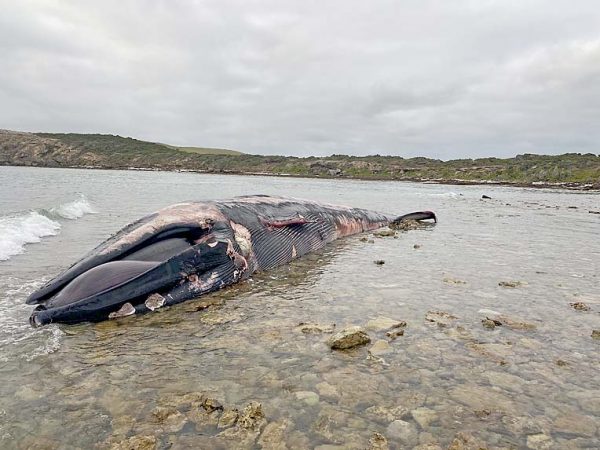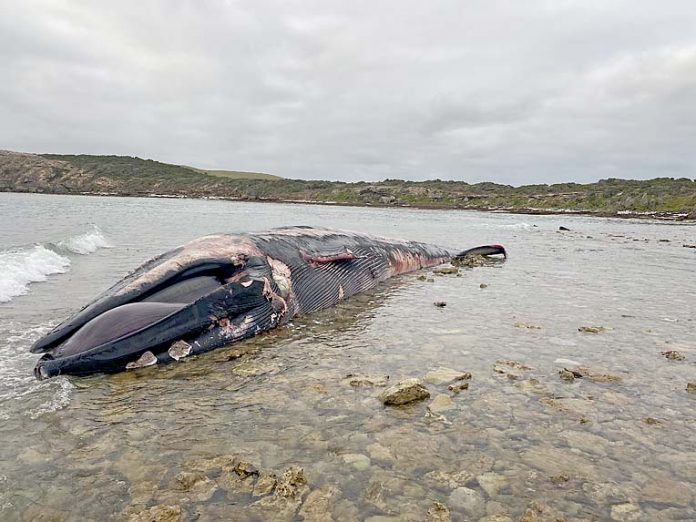
CURIOUS beachgoers are being urged to remain cautious around the Cape Douglas coastline where a whale carcass has washed ashore.
Natural Resources South East was first notified last Wednesday about the carcass at Hines Bay, which is around 12 metres long and is believed to be either a fin or sei whale.
Laboratory testing is currently being carried out on samples of the animal’s blubber and muscle to analyse its characteristics, with the last fin whale to wash ashore in South Australia dating back to 2009.
The fin whale is second only to the blue whale in size, while the sei whale is the third-largest species.
While early indications suggest this carcass could be a young whale of either species, its tissue samples have been sent to the South Australian Museum for testing.
Due to COVID-19 restrictions, researchers from the museum are not able to travel to the site to perform an autopsy to understand how the whale has died.
Natural Resources South East district ranger Ross Anderson said the sighting of the young whale was a rare occurrence for the Limestone Coast.
“It is difficult to identify at the moment,” Mr Anderson said.
“We do get other dolphins and whales appearing on the beach but that is only about once a year.”
He said the tissue had already been retrieved from the carcass for testing.
“There is no reason why those within the community who are curious can’t go and have a look but they are warned it does have a significant odour so it is best to observe from a distance,” the district ranger said.
Mr Anderson advised against people entering the water near the whale carcass due to an increased risk of predator species.
“Those who do have a look should be wary because as the whale breaks down it creates oil and bloody produce which leaks into the sea and attracts sharks,” he said.








